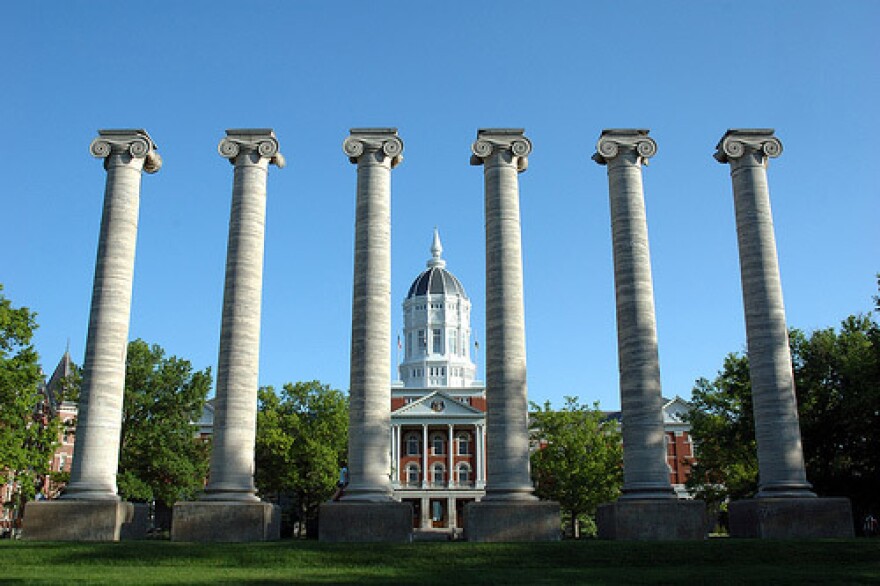Updated at 6:10 p.m. with Greitens' statement — Missouri’s auditor criticized the University of Missouri System on Monday for giving excessive bonuses and other incentives to several current and former top administrators at a time when the system grapples with funding cuts and mulls raising tuition.
Auditor Nicole Galloway called the $2.3 million in “hidden” payments and incentives “inappropriate” in an audit report released in Jefferson City. She also said the payments "may violate the Missouri Constitution."
Those administrators included former Columbia campus chancellor R. Bowen Loftin, who resigned in November 2015 amid racially charged protests at the school and claims the school’s leadership wasn’t taking accusations of racism seriously. Post-resignation, Loftin was given a new, higher-paying role that he has to this day.
“These decisions demonstrate poor judgment and a lack of accountability in almost every aspect of the former chancellor’s resignation,” Galloway said in a statement. During her news conference, she said: “This one is personal for me.” Galloway holds a master’s degree from Mizzou and lives in Columbia.
The incentive payments are in line with guidelines set by the UM System's governing body, though Galloway called them “alarming” and said the program in its current form appears to violate the Missouri Constitution.
Here are key takeaways from the audit, which covered fiscal years 2014-2015 and 2015-2016 (the tail end and aftermath of former UM System president Tim Wolfe’s November 2015 resignation):
- Loftin was paid $230,000 in salary for six months after his resignation despite not having a job title and later given a national security research and policy position by interim Chancellor Hank Foley worth $544,600 in salary and perks. Loftin told St. Louis Public Radio that he hadn't yet seen the report, and therefore couldn't comment.
- $407,000 in vehicle allowances paid to 18 administrators in 2015 and 2016.
- $800,000 in undisclosed bonuses to those 18 officials, among them the chancellors of UM’s four campuses, and includes retention bonuses and housing allowances.
In all, top administrators of the UM System’s four campuses were given $819,000 in incentives, the audit said. The Board of Curators does not directly approve incentive pay to top officials, but authorizes money for the program.
Loading...
New UM System President Mun Choi defended the executive compensation system in a statement, saying it’s on par with programs at other top college networks and “critical to our capacity to attract and retain top leaders in what is an extremely competitive national higher education market.”
The UM System will set better performance metrics for top officials, Choi also said.
The University of Missouri System is facing a proposed 9 percent reduction in state funding, and its Columbia and St. Louis campuses are losing students. In February, the system’s Board of Curators suggested that tuition might need to be raised beyond the inflation rate to balance its books. Such a move would require a waiver from the state higher education commission or a legislative rule change.
Republican Gov. Eric Greitens, who proposed the budget cuts to higher education, said the auditor’s report contradicts the system’s claims it’s done all it can to cut costs.
“I'm all for good pay for people who do a good job, but I won't support giving tax dollars to people without proven results. And I definitely won't support doing that at the expense of students and families,” he said in a statement.
The auditor’s report gave the entire system a “fair” rating, second from the lowest out of four rankings, which means the institution needs to improve in several areas, some needing immediate response but that there’s some reluctance to change policies.
Follow Ryan on Twitter: @rpatrickdelaney.



